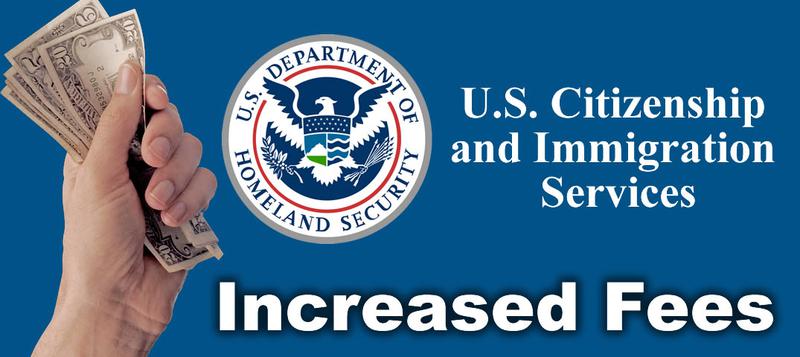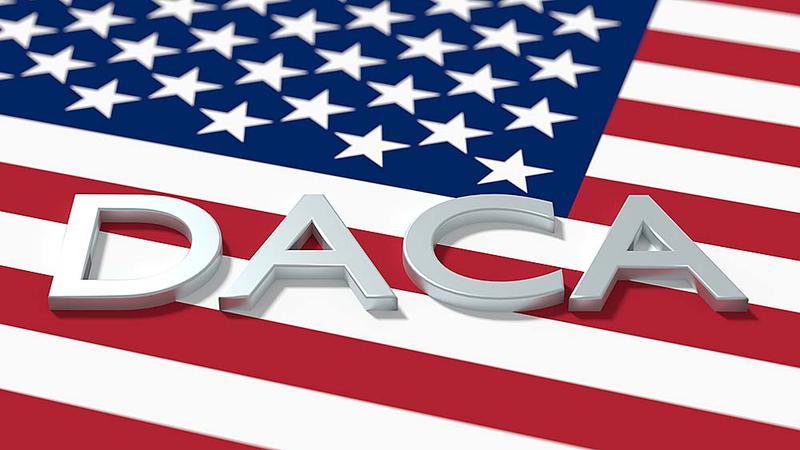Learn More About:
Immigration News & Updates eNewsletter © 2011 - 2020
For questions about U.S. Residency, Green Cards and Immigration Visas, Visit our Website at: www.ImmigrateToday.com or call our office at: (954) 382-5378
Check Out This Cool Stuff For Immigrants....
Immigration
Questions & Answers
This Week's Immigration News
Immigration News & Updates
Immigration How To:
How Do I Qualify For Early Naturalization?
Questions About Immigration? We have the answers!
We Are Here To Help, Call us now for a FREE consultation (954) 382-5378
Helpful Immigration Tips You Can Use...
Question: Me and my wife got married in April just before they closed the marriage license office, so we were really lucky. But it took us a lot of time to get all the forms and such together to file for her papers and we sent it to the immigration office certified mail July 17th. But since then we have not heard anything. We thought we would get a letter acknowledging it but we did not. Our check has not even been cashed yet. I am worried that I should cancel that check in case it got lost, do you know if this sounds normal that it would take so long?
As long expected, USCIS filing fees are set to significantly increase on October 1, 2020. Many fees have risen an average of 20%, with some decreasing slightly, but some fees have nearly doubled, like residency fees for the adjustment of status process, from the current fee of $1,225 (which includes the work, travel permits and biometrics fee of $85), soaring to $2,195!
Couple this, with the new I-130 application fee of $555 required in all family sponsored cases and the total skyrockets to $2,750!
URGENT ALERT:
USCIS Residency & Naturalization Filing Fees
Set To Nearly Double On October 1st!
AMERICAN IMMIGRATION
LAW CENTERS
Immigration Questions: (954) 382-5378
POSTING DATE: August 3, 2020
Completing The National Visa Center Process For Immigrating Relatives
During Trump’s Immigration Ban
The Trump immigration ban has put a hold on many family immigration cases which are in the final stages of processing, until at least December 31, 2020. However that does not mean that National Visa Center (NVC) processing has stopped. The NVC is continuing to prepare cases for consular interviews, even with the ban in place, that way, cases can be ready for final appointment scheduling once the ban is lifted.
Answer: With the Covid-19 pandemic raging and reduced staffing, it is taking longer than usual for the USCIS to send you a notice. So not to worry, once the USCIS receives your application, it can now take two weeks or more for the check or money order to be cashed and for you to receive your Receipt, called the I-797 Notice of Action. Once your check is cashed, you can view a copy of it online through your bank and see that the back of the check or money order will have the case number on it and will start with three letters, followed by 10 numbers, for instance, MSC1234567890. You can use that case number to check the status on the USCIS website. For the future, an easy way to know your case was received is to include a form G-1145 with each case, in order to get a text or email message from the USCIS once your case is received, which will include the case number. Once you have your case number, you can go to the USCIS website and sign up for Email Status updates on your case through the USCIS My Case Status program. Once you register and enter your case number(s), the USICS will automatically email you notifications and updates on any actions take on your case so that you are better informed about your case status. Finally, a good tip is never to send an immigration application using certified mail, since it takes such a long time, 5-10 days to be delivered. Its always best to use Priority Mail, which often takes about 2 -3 days for delivery and only costs about $7.
Eligible U.S. Residents who are spouses of U.S. Citizens can apply for Naturalization early and obtain their U.S. Citizenship in only 2 years and 9 months.
For background, most U.S. Residents (Green Card holders) must wait for 4 years and 9 months before being eligible to apply for Naturalization, however, qualifying U.S. Residents who are married to U.S. Citizens are eligible to apply 2 years earlier, called “Early Naturalization”.
Trump Administration Defies Supreme Court –
Says It Will Not Accept New DACA Applications!
In direct defiance of the Supreme Court ruling issued on June 28, 2020, directing the USCIS to continue providing DACA benefits (under the original Obama policies in effect prior to Trump’s cancellation of the program in 2017), the U.S. Department of Homeland Security (DHS) announced last week that it will not abide by the ruling. Instead, the USCIS says it will not accept any new DACA applications or advance parole requests (for travel) and will even restrict DACA renewals to one year validity period, instead of the current two-year period.
In a Memorandum issued to explain its new policy, the department reiterates its intentions to terminate the program and to reject all new pending and future requests for DACA, with the exception of one year renewals.
The reason for the massive increase is that the filing fee for the I-485 adjustment of status application will no longer include the work and travel permit, which will now be charged separately. The new fee for the work permit (employment authorization document) will be $545 and $585 for the travel permit (advance parole).
These excessively high fees put immigrants in an awful situation, being forced to pay exorbitant fees in order to be able to work and travel during the long residency process, or being unable to work or travel during the process in order to save money. Naturalization filing fees are also increasing from $725 ($640 plus $85 biometrics) to $1,170! This is sure to have the effect of discouraging residents from pursuing U.S. Citizenship due to the costs. Perhaps that is what the Trump administration has in mind.
Here is a sample of the current residency fees by form:
Family Petition Form (I-130) $535
Green Card Application Form (I-485) $1,140
Financial Support Form (I-864) $0
Work Permit Application (I-765) $0
Travel Permit Application (I-131) $0
Biometrics (fingerprints & photos) $85
Total Current Cost: $1,760
Here are the new fees which will be required on or after October 1st:
Family Petition Form (I-130) $555
Green Card Application Form (I-485) $1,120
Financial Support Form (I-864) $0
Work Permit Application (I-765) $490
Travel Permit Application (I-131) $585
Biometrics (fingerprints & photos) $0
New Total Cost $2,750
Other common application filing fees increases include:
I-102 Application for Replacement of Arrival-Departure Document from $445 to $490
I-130 Petition for Alien Relative from $535 to $555
I-539 Application to Extend or Change Status from $370 to $400
I-751 Petition to Remove Conditions on Residence from $595 to $760
As a result of the impending immigration application filing fees increases, applicants and sponsors should take the opportunity to file cases now, before the stiff increases go into effect!
Proposed USCIS Fees Increases
The release also indicates that the agency needs additional time to review DACA policies to determine how the Supreme Court decision should impact the administration’s handling of the program. This leaves hundreds of thousands of Dreamers with more uncertainty about their future and with even less benefits than they had before the Supreme Court ruling! Upcoming court hearings before Judge Grimm at the U.S. District of Maryland will address the matter in the coming weeks. However, the administration seems to be taking pleasure in its defiance of court orders, almost daring federal courts to find them in contempt! As the saga continues… Stay tuned…
Court Blocks Trump From Applying Public Charge Policy During Pandemic
On July 29, 2020, the U.S. District Court for the Southern District of New York (SDNY) issued a ruling to block the Trump administration from applying the Public Charge policy which went into effect in February 2020.
The order applies nationwide and prevents the USCIS and State Department from mandating that immigrants filing for residency submit form I-944 inside the U.S. and form DS-5540 (for consular processing outside the U.S.), along with residency applications during the coronavirus pandemic.
Under the public charge policy, government officials have extensive authority to arbitrarily deny green cards to immigrants who it deems will become a public charge (meaning one who relies upon government benefits such as welfare or other assistance).
For background, last year the administration issued regulations called Inadmissibility on Public Charge Grounds Final Rule, which took effect on February 24, 2020. Since that time, Immigrants have been required to file form I-944 (inside the U.S.) and form DS-5540 (outside the U.S.) as well as to provide extensive financial and other documentation to prove financial eligibility. In response to the rule, numerous lawsuits were filed by several states including New York to stop its implementation. The issue was appealed to the Supreme Court, which denied a request from New York and other states in April 2020 to block the rule during the pandemic, referring the case to the lower federal appeals court. The lower court case was decided last week in SDNY.
In his ruling, SDNY Judge George Daniels cited the urgency of the coronavirus pandemic, writing that with the pandemic worsening "Any policy that deters residents from seeking testing and treatment for COVID-19 increases the risk of infection for such residents and the public. Adverse government action that targets immigrants, however, is particularly dangerous during a pandemic,". In a second ruling, Judge Daniels also put a hold on Trump’s health insurance requirement applied to consular cases abroad, which requires those applying for visas abroad to the U.S. show they have health insurance coverage in order to avoid being denied a visa.
Experts say the administration is likely to once again appeal the issues, but in the meantime, immigrants are no longer required to submit the public charge form or provide any documentation relating to the form, and no longer required to prove that they have health insurance coverage. This ruling is a welcome relief which will save immigrants countless hours of data and document gathering, as we now go back to the pre-February 2020 rule, which only required the Affidavit of Support, Form I-864 filed by the sponsor (and joint sponsor if required).
USCIS Public Charge
Court ruling on Health Insurance Requirement
Inadmissibility on Public Charge Grounds Final Rule
Question: I got married to my citizen husband last year but we didn’t not file my immigration application yet because he didn’t file for his taxes for 2018. Then he just filed it late a few months ago and filed an extension for his 2019 taxes. His accountant says he will owe taxes for 2019 so he is afraid that he wont qualify to sponsor me. I have been waiting so long and don’t have any thing to show my status, so I really want to get everything in to get my status straight. Can you please tell me if he files his 2019 taxes and owes money, can he still qualify to file for me?
Answer: The short answer is yes, as long as his income meets the minimum requirements. The issue of owing IRS taxes and how it pertains to the immigration process is often a big source of confusion for many. U.S. Residents and Citizens sponsoring relatives are required to provide their current tax return (2019) and the income figures (not actual returns) for the previous two tax years (2018 & 2017). It does not matter whether taxes are owed or not, just as long as the returns were filed. This is in contrast to tax issues for U.S. Residents who want to apply for naturalization. In such cases, owing back taxes is important, but in most cases, it does not prevent a resident from qualifying for naturalization. The law requires that residents who owe taxes provide proof that they have entered into a formal repayment plan with the IRS and show that they have made all payments due under the plan. So in your case, your husband can file his 2019 tax return now and sponsor you, even though he owes taxes. I hope this is helpful to you.
Question: You helped my aunt so she said I should email you with my questions. I am a green card holder since 2010. I got married to my wife last year in Jamaica. I filed for her in June 2019 and just got her approval in the mail with a notice that says her file is being sent to a national visa office. Its been hard to be separated because of the virus, but she was able to get time off from work and found a flight here to florida last week so we could spend a few weeks together. We read where the president had put a stop on immigration cases for family from abroad and that it includes my wife. So we were wondering about whether we could try doing her process here instead of in Jamaica, since she came here on a legal visa. My wife says it is too risky and she doesn’t want to get deported, but I want to find out if its possible since she is here and we don’t want to be separated anymore. Thank you for your guidance.
Answer: Great question. Yes, even though you filed the spousal petition for your wife for consular processing abroad in Kingston, Jamaica, since your wife is here in the U.S. legally, we can file for her adjustment of status to get her green card. She will be able to remain in the U.S. legally through the entire process. It will take about six months to get her work and travel permit, then another several months to be scheduled for your marriage residency interview and for her to receive her green card. You are correct that Trump’s immigration ban issued in March and recently extended until December 31, 2020 (or even later if Trump is re-elected) applies to most family immigration cases, including spouses and minor children of residents. However, it does not apply to adjustment of status inside the U.S., so the ban has no effect on her eligibility to obtain residency while she is here. The same is true for most immigrants who are currently going through consular processing through the National Visa Center, but are not able to complete the process due to the immigration ban. Let me know if you have any questions or want my assistance in handling her Residency case.
So its more important than ever for sponsors and immigrating family members to provide the NVC with the required documentation in the correct format through the online Consular Electronic Application Center (CEAC).
Here are the basic steps in the process:
1) Pay NVC Bills: The first step is to pay the consular fees to begin the process. Fees are currently $445 per person or $325 per person and $120 for family.
2) Submit Affidavit of Support and supporting documents: Once the fees are paid, the next step is for the sponsor to immediately submit the completed, signed form I-864 Affidavit of Support, current 2019 tax return (or tax transcripts) , W-2 and paystubs through the CEAC system.
3) Complete the DS260 Immigrant Visa Application: at this stage, the immigrating family members must complete the DS260 form for each person and submit.
4) Civil Documents: all immigrants are required to submit certain civil documents, including, Birth and Marriage certificates, divorce decrees, passport biographic page, police certificate, passport photos, criminal records, etc. These documents must be carefully scanned and uploaded through the CEAC system for each immigrating family member.
5) NVC Review: Once the documents are submitted, it can take up to 30 days for the NVC to review the documents. If documents submitted are not clear or scanned improperly, they are rejected and the sponsor/immigrant will receive an email notification to log in and replace such documents with properly scanned versions.
6) Consular Interview: Once the NVC finds all the documentation is acceptable, the NVC will email notification that the case is complete and the next step is to wait for notification from the consulate. At this point, spouses and minor children of U.S. citizens will be scheduled for consular interviews when available, but most other immigration cases will be on hold until at least December 31, 2020. Once the ban is lifted, the U.S. Consulate will begin sending notification emails with the date and time of the interview, along with instructions on scheduling the required medical examination and listing documentation to bring to the medical exam and consular interview.
It’s important to understand that the NVC process can be completed in as little as 60 days if the case is properly prepared and submitted. If not, the process can end up being delayed for many months causing immigrating family members to remain in limbo just waiting, for no good reason. In some cases, I have had individuals come to me over six months into the process exasperated, annoyed, and nearly ready to give up after having previously repeatedly tried to do the case themselves. In addition to sponsors being unsure of which documents are required and unfamiliar with the CEAC system, the main delays are usually caused by documents being uploaded which do not meet the requirements. Here’s a few document tips:
Rule #1, never use your cell phone to take a picture of a document, all documents must be scanned at a clear resolution using a scanner and saved as a pdf. Pics taken with a cell phone will be rejected.
Rule #2, always make sure that the document you are scanning is upright on the page, since documents scanned sideways or upside-down will be rejected.
Rule #3, make sure to scan the entire document so that all sides are fully showing. Scans of documents which are cut off will be rejected. For instance, if a birth certificate has stamps, but the scanned page cuts a portion of the stamp off, the document will be rejected. Similarly, if a document is on oversized paper and the scan cuts off the bottom of the document, it will be rejected. The best approach is to take oversized documents to office depot and have them reduce it to letter size.
Rule #4, reduce the size of the pdf before uploading. The maximum size is 2 mb. Many documents with multiple pages scanned on copiers and printers will easily go over 2 mb, so you’ll need to use a pdf program which allows you to reduce the pdf size.
Rule #5, documents which are in the same language as the country from which the family members are immigrating do not need English translations. For instance, if an immigrant is from Colombia and all his or her documents are in Spanish, no English translations are required to be submitted.
Finally, remember that every time you submit or resubmit documents, it can take the NVC up to 30 days to review them, this can cause delay after delay, on and on. So the best approach is to carefully prepare the documents, review the scans to make sure they meet each and every specification before uploading and submitting and then check your emails frequently in case the NVC issues a request for resubmission on one or more documents, so that you can take care of it immediately.
We can quickly and easily take care of the entire NVC process for you! Give us a call at: 954-382-5378.
To qualify under this expedited U.S. Citizenship process, a U.S. Resident must fall under what is commonly called the “3/3/3” rule:
1) The U.S. Resident must be married to their U.S. Citizen spouse for at least 3 years and
2) The U.S. Citizen spouse must have been a U.S. Citizen for at least 3 years and finally,
3) The U.S. Resident must have held that status for at least 3 years (really 2 years and 9 months).
So, as long as the U.S. Resident meets these requirements and is not only currently married to, but continues to reside in a real marriage with their U.S. Citizen spouse – they can apply for early naturalization… now you know ...












